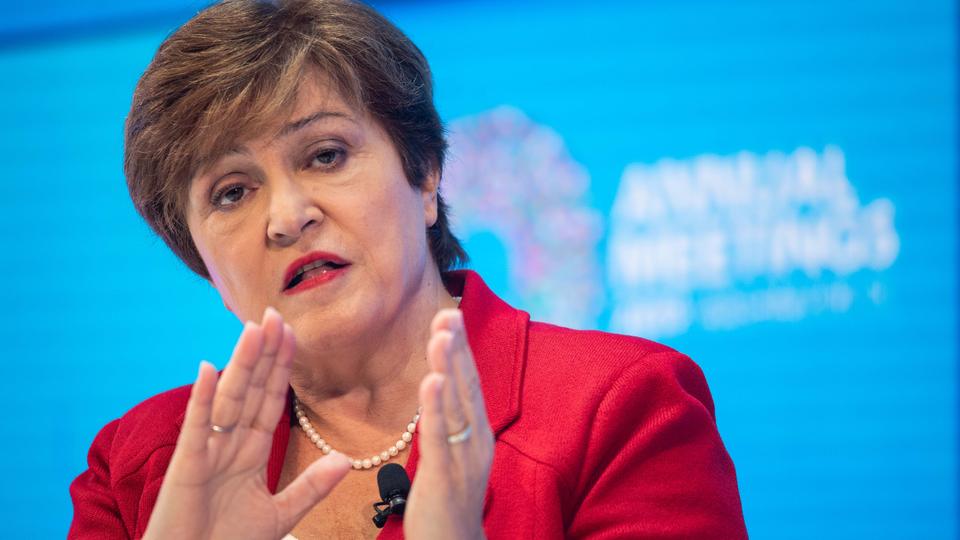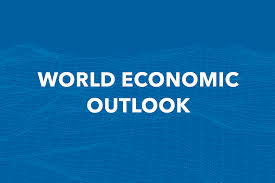IMF projects sluggish global economic growth for 2020

.International economy to face array of risks
.US, China trade deal will up global economy by 0.2%
.Forcasts 2.5% growth rate for Nigeria economy
.Says emerging market, developing economies will hit 4.4% in 2020
By Editor
The International Monetary Fund (IMF), has projected a weak global economic growth rate for 2020, saying that it will increase modestly from 2.9 per cent in 2019 to 3.3 per cent in 2020 and 3.4 per cent in 2021.
IMF in its January 2020 World Economic Outlook, stated that low-interest rates and reduced trade tensions will likely sustain the global economy over the next two years and help nurture steady if modest growth.
The multilateral Institution added that the international economy is receiving a significant boost 0.5 percentage point last year and this year from central banks’ low-interest-rate policies.
For instance, the interim trade deal signed last week by the United States and China is expected to add 0.2 percentage point to global growth this year by lowering tariffs and improving business confidence.

The global economy appears to be rebounding from temporary stumbles, including a lull in the launch of new technology products and new emissions standards that disrupted car production.
In spite of the hope painted, the IMF warned that the global economy will continue to face an array of risks, including the possibility that trade tensions will de-escalate. And many countries aren’t benefiting from the modest upswing in growth.
Presenting the report at a news conference in Davos, Switzerland, IMF chief Kristalina Georgieva said that after a slowdown in 2019 there should be “a moderate pickup in global growth this year and next.”
“We already see some tentative signs of stabilisation,” she said. “But we have not reached a turning point yet.”
Even in the United States, the IMF foresees growth slowing from 2.3 per cent in 2019 to 2 per cent this year and 1.7 per cent in 2021, partly because the boost that the economy received from the Republican tax cuts of late 2017 has been fading.
China’s economy will also continue to decelerate, the IMF predicts, from 6.1 per cent last year to 6 per cent in 2020 and 5.8 per cent next year. Though China’s economy will likely benefit from the truce with the United States, Beijing continues to manage a difficult transition away from speedy economic growth based on often wasteful and debt-fuelled investments to slower but steadier growth built on spending by the country’s growing middle class.
Likewise, Japan’s economic growth, hobbled by an ageing workforce, is expected to decelerate from 1 per cent last year to 0.7 per cent this year to 0.5 per cent next year.
Collective growth in the 19 countries that use the euro as their currency is expected to gradually pick up: 1.3 per cent in 2020 and 1.4 per cent in 2021.

The IMF’s global forecast is slightly bleaker than the previous one it issued in October, mainly because of an expected sharp slowdown in India: The world’s seventh-biggest economy is expected to grow 5.8pervcent this year, down from the 7 per cent the IMF had expected in October, and 6.5 per cent in 2021, down from a previously forecast 7.4 per cent.
The slight downward revision of 0.1 per cent for 2019 and 2020, and 0.2 per cent for 2021, is owed largely to downward revisions for India.
The projected recovery for global growth remains uncertain, as it continues to rely on recoveries in stressed and underperforming emerging market economies, as growth in advanced economies stabilises at close to current levels.
For emerging market and developing economies, the global institution forecasted a pickup in growth from 3.7 per cent in 2019 to 4.4 per cent in 2020 and 4.6 per cent in 2021, a downward revision of 0.2 per cent for all years.

Meanwhile, Nigeria economy has been projected to grow by 2.5 per cent in 2020 and 2021, as the outlook for the next three years from 2020 to 2023 will be than the 1.9 per cent recorded in 2018 and 2.3 per cent in 2019.
This is even, as the risks to the global economy projected to remain on the downside, despite positive news on trade and diminishing concerns of a no-deal Brexit. New trade tensions could emerge between the United States and the European Union, and US-China trade tensions could return.









